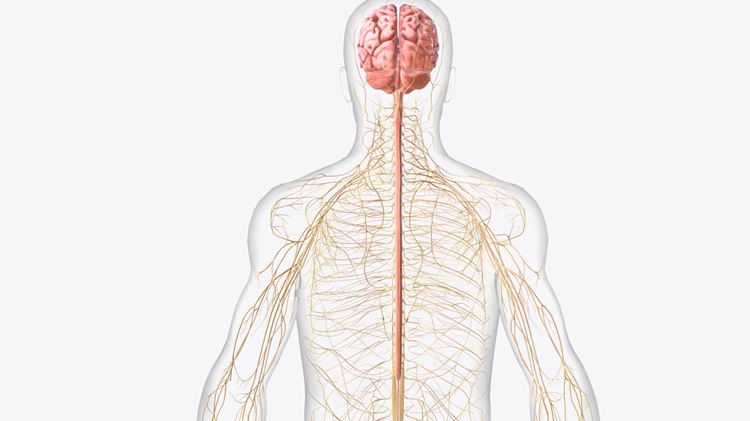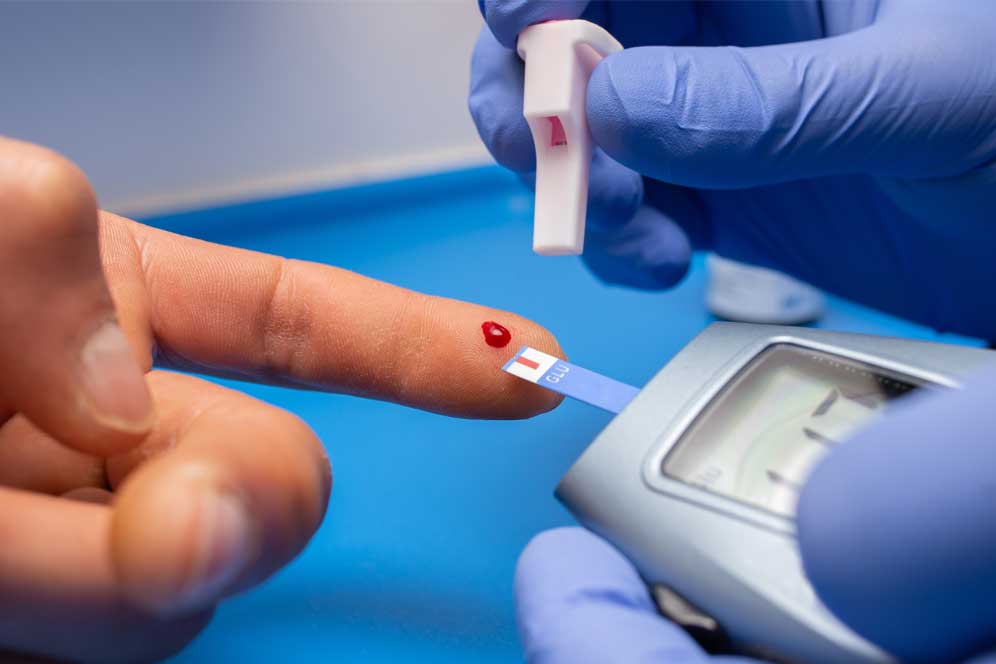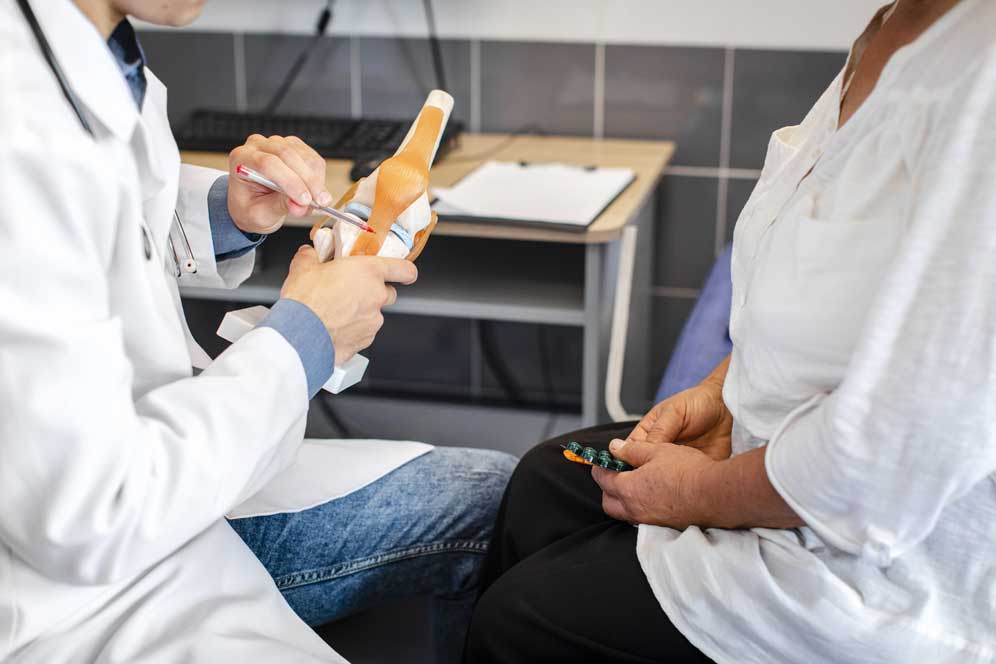
9 Oct 2025
What Is the Nervous System? Parts, Functions, and Why It’s Important
The nervous system is one of the most fascinating and vital systems in the human body. It’s like your body’s personal communication network — constantly sending, receiving, and processing information so you can think, move, feel, and respond to the world around you. From the moment you wake up and blink your eyes to the moment you drift off to sleep, your nervous system is quietly at work, keeping everything running smoothly.
In this beginner-friendly guide, let’s break down what the nervous system is, its key parts, how it functions, and why it matters so much to your everyday life.
What is the Nervous System?
The nervous system is the body’s master control system. It coordinates every voluntary action (like walking or talking) and involuntary action (like breathing and digestion). Think of it as the body’s electrical wiring combined with an intelligent command center.
It works by transmitting tiny electrical signals between the brain, spinal cord, and every part of the body through specialized cells called neurons. These messages travel at lightning speed — some faster than 250 miles per hour — allowing your body to respond to changes in milliseconds.
In short, without the nervous system, you wouldn’t be able to move, think, feel, or even survive.
Nervous System Parts and Functions
The Two Major Parts of the Nervous System
The parts of the nervous system are mainly divided into two major components:
1. Central Nervous System (CNS)
2. Peripheral Nervous System (PNS)
Let’s explore what each part does.
1. Central Nervous System (CNS)
The CNS is the control center of the body — it’s where all major decisions are made. It consists of two main organs:
- Brain: The brain is the most complex organ in the body, containing about 86 billion neurons. It interprets information, controls thought, memory, emotion, and behavior, and directs every function in your body. Different parts of the brain manage different activities — the cerebrum handles reasoning and thinking, the cerebellum manages balance and coordination, and the brainstem regulates vital functions like heartbeat and breathing.
-
Spinal Cord: The spinal cord is a long, thin bundle of nerves that extends from the brainstem down through the spine. It acts as a highway for messages between the brain and the rest of the body. It also controls quick, automatic responses known as reflexes — like pulling your hand away from something hot.
Together, the brain and spinal cord ensure that the body’s responses are fast, coordinated, and accurate.
2. Peripheral Nervous System (PNS)
While the CNS makes decisions, the Peripheral Nervous System is the messenger — carrying information to and from the brain and spinal cord. It connects the central nervous system to the limbs, organs, and skin through a vast network of nerves.
The PNS is further divided into two parts:
- Somatic Nervous System (SNS): Controls voluntary movements — like typing on a keyboard or walking. It includes sensory nerves (which detect stimuli like touch, temperature, or pain) and motor nerves (which move muscles).
-
Autonomic Nervous System (ANS): Controls involuntary actions — such as heart rate, digestion, and breathing. It operates automatically, without conscious control, and is further divided into:
-
Sympathetic Nervous System: Triggers the “fight or flight” response during stress — increases heart rate, dilates pupils, and releases adrenaline.
-
Parasympathetic Nervous System: Activates “rest and digest” functions — slows heart rate, aids digestion, and conserves energy.
-
How the Nervous System Functions
The function of the nervous system is to detect what’s happening inside and outside the body, process that information, and trigger appropriate responses. It does this in three main steps:
1. Sensory Input:
The body detects changes (stimuli) through sensory receptors — for example, your skin feels heat, or your eyes see light.
2. Integration:
The brain and spinal cord process and interpret the sensory information, deciding what should happen next.
3. Motor Output:
The nervous system sends out commands to muscles or glands to perform a specific action — like moving your hand away from heat or releasing hormones.
This constant communication between sensory, processing, and response keeps you alive and responsive every second of the day.
The Building Blocks: Neurons and Glial Cells
- Dendrites – receive signals from other cells.
-
Axon – carries the electrical impulse.
-
Axon Terminals – transmit the message to the next neuron or muscle.
Neurons don’t work alone. They’re supported by glial cells, which nourish, protect, and insulate them to ensure efficient communication. Together, they form intricate networks that allow everything from reflexes to emotions to memory formation.
Why the Nervous System Matters
The importance of the nervous system goes far beyond just movement or thinking — it literally defines who you are. Here’s why it’s essential:
- Controls Every Body Function: Every heartbeat, breath, blink, and step is coordinated by your nervous system.
-
Keeps You Safe: Reflexes help you avoid danger instantly — long before your brain even processes the threat.
-
Supports Emotional Well-Being: Emotions like happiness, fear, and excitement are governed by neural activity and neurotransmitters like dopamine and serotonin.
-
Drives Learning and Memory: Your ability to remember a phone number, learn a language, or play an instrument depends on neural connections.
-
Connects Mind and Body: Stress, sleep, diet, and mental health all influence the nervous system — and vice versa.
Without it, your body would be a collection of disconnected parts with no coordination or awareness.
Common Nervous System Disorders
Just like any other system, the nervous system can face problems due to disease, injury, or degeneration. Some common disorders include:
- Alzheimer’s disease: Causes memory loss and cognitive decline.
-
Parkinson’s disease: Parkinson’s disease Affects movement and coordination.
-
Epilepsy: Leads to recurrent seizures caused by abnormal brain activity.
-
Multiple sclerosis (MS): Damages nerve coverings, disrupting signal transmission.
-
Peripheral neuropathy: Nerve damage that leads to pain, numbness, or weakness.
-
Stroke: Occurs when blood flow to part of the brain is blocked or reduced.
While some conditions are hereditary or age-related, others can be prevented or managed with lifestyle care, early diagnosis, and medical intervention.
Keeping Your Nervous System Healthy
Your nervous system thrives when you take care of your overall health. Here are simple ways to keep it in top shape:
- Eat a balanced diet rich in omega-3 fatty acids, B vitamins, and antioxidants.
-
Stay physically active to enhance blood flow and promote brain health.
-
Get enough sleep to allow your brain to repair and recharge.
-
Manage stress through mindfulness, meditation, or breathing exercises.
-
Avoid smoking and excessive alcohol which can damage nerve tissue.
-
Stay mentally active — read, learn, solve puzzles, or engage in creative activities.
The Bottom Line
The nervous system is the ultimate command center of your body — a complex, beautiful network that powers everything you do, think, and feel. Understanding its parts and functions helps you appreciate just how miraculous it is. From coordinating movement to processing emotions and memories, the nervous system makes you you.
So the next time you blink, laugh, or take a deep breath — remember, it’s your nervous system quietly doing its magic.
Recent Blogs
-

We will work with you to develop individualised care plans
Arora Neuro Centre maintains awareness about the vital association between diabetes and neurological health issues where diabetic patients face greater stroke susceptibility.
-

How Diabetes Affects Brain Health: The Hidden Risks
Typically diabetes causes problems with blood sugar management as well as negative effects on heart organs and kidneys.
-

Can Diabetic Neuropathy Be Prevented? What You Need to Know
One of the typical complications arising from diabetes affects nerves through diabetic neuropathy which results in various symptoms from muffled sensation and tingles to intense pain.
-

Psychotherapy for Anxiety: Techniques That Really Work
Anxiety is one of the most common mental health conditions in India and around the world. It can affect anyone, whether you’re a student under pressure, a working professional managing deadlines, or a parent juggling multiple responsibilities
-

Physiotherapy vs. Chiropractic: What's Really Differentiating Them?
Physiotherapy and chiropractic care both aim to relieve pain and improve mobility, but they differ in approach. Physiotherapists focus on exercise, movement, and rehabilitation, while chiropractors primarily use spinal adjustments to treat musculoskeletal issues. Understanding these differences can help you choose the right treatment.
